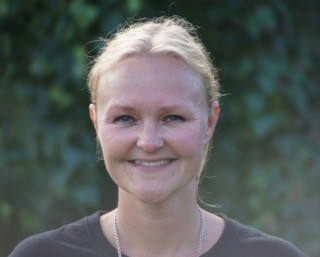 After being diagnosed with breast cancer while pregnant eight years ago, Janne Rodsten is now studying for a professional doctorate in counseling psychology at the University of the West of England in Bristol, UK. In connection with her final thesis, due for submission in 2016, she will be carrying out a formal study into women’s experience of pregnancy-associated breast cancer.
After being diagnosed with breast cancer while pregnant eight years ago, Janne Rodsten is now studying for a professional doctorate in counseling psychology at the University of the West of England in Bristol, UK. In connection with her final thesis, due for submission in 2016, she will be carrying out a formal study into women’s experience of pregnancy-associated breast cancer.
“My study is a qualitative investigation looking at the detailed experiences of women who were diagnosed with breast cancer while pregnant,” Janne says. “I want to find out the most difficult aspects of this experience, what was helpful and what was not, and whether women view their illness differently because they were pregnant.”
Janne is still looking for more women who are willing to share their experiences. Get in touch with her at janne3.rodsten[at]uwe.ac.uk
Lack of information and understanding
Janne’s personal experience was tough and she struggled with a sense of isolation she didn’t feel able to share with her partner. Lack of information was a huge issue.
“There was practically no information about cancer during pregnancy at the time,” Janne says. “My doctors seemed quite puzzled that I should be so unlucky to get cancer while being pregnant, but they treated me like any other breast cancer patient and didn’t really talk a lot about my unborn son. I had a caesarean at 35 weeks before starting chemotherapy straight away.”
“I experienced people’s disbelief when I told them that I was pregnant when diagnosed with breast cancer. You stand out as somehow abnormal or a freak – this is something I’ve heard other women speak of, not just my own experience. It might start in the maternity ward where the midwives treat you differently and say things like ‘mum has cancer’ to other nurses, or among friends and family where you are made to feel that you were freakishly unlucky to get cancer while being pregnant.”
Emotional support was also lacking and it is this aspect that Janne will explore through her doctoral thesis, looking at the psychological impact of cancer in pregnancy and asking how healthcare professionals and families could cope better. Crucially, decisions around treating cancer while pregnant are still fraught with misinformation. Janne suggests that while women may feel conflicted themselves, medical professionals sometimes exacerbate the matter.
“Medical professionals tend to prioritize the mother’s health above the child’s as the cancer patient she is, and sometimes argue between themselves as to which medical professional should determine the birth and treatment plan: obstetrician or oncologist,” Janne says. “The pregnant woman is often exposed to this conflict of interest and differing agendas, and this can be stressful, confusing and very scary.”
The need to close the knowledge gap
Janne believes the lack of information about pregnancy and medication needs to be addressed and points to the data gap around treating pregnant women.
“I think that the effects of administering medicines during pregnancy has been bypassed as a research area because pregnant women are seen as vulnerable and therefore extremely difficult to perform tests on, in terms of safety for the unborn child,” she says. “In addition, there have been horrifying historical cases of children suffering adverse effects from medicine taken during pregnancy (e.g. Thalidomide), which have understandably discouraged development of new and safe remedies for pregnant women, and promoted a philosophy of pregnancy as preferably medicine-free.”
In the eight years since her diagnosis, Janne feels there have been improvements and an increase in awareness that cancer during pregnancy is a growing problem that needs to be addressed, not just at a physical level – in terms of which medicines are safe, but also at a wider psychological, family-inclusive level. However, much work still needs to be done.
“I would like to see women supported by health services in a planned and coordinated manner,” Janne says. “I would like to see obstetricians, midwives, nurses and cancer doctors trained and prepared to manage pregnant patients with cancer, as well as general guidelines and more research on appropriate treatment procedures, including psychological management of the patient and her family, at diagnosis and after treatment.
“I would also like to see organizations such as the brilliant Mummy’s Star supported much more in the work they do of putting women in contact with each other and offering help with practical problems, from obtaining breast milk for the newborn (from a bank) to child care and financial help with everyday necessities.”
You can follow Janne’s progress as she works towards her doctorate via her blog or Facebook. She would welcome contact from anyone who wants to share their experience of pregnancy-associated breast cancer.
